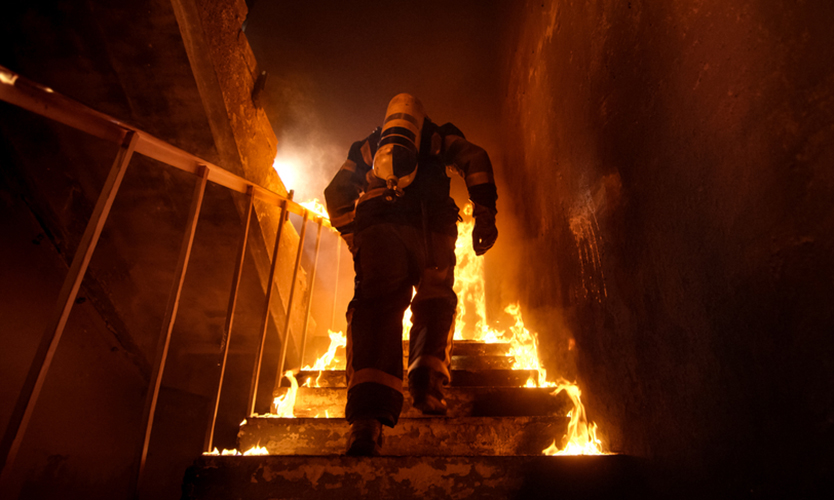Comp alternatives may be the answer
- October 14, 2025
- Posted by: Web workers
- Category: Workers Comp

Alternatives to presumption laws, such as supplemental benefit programs, are likely the future for municipalities, experts predict.
And more first responders, facing legal challenges while fighting cancer, are embracing the idea of such alternatives, said John Hanson, an Atlanta-based senior consultant with Willis Towers Watson PLC.
“We’re not going to do away with the presumption … but I also feel that at the end of the day, if it’s taxpayer dollars that you’re really looking at, a municipality should have the opportunity to opt into a program” that offers a lump-sum payout to offset medical costs rather than treating the occupational cancer or PTSD through the comp system, he said.
In early 2017, Georgia created such an alternative to workers comp for firefighters with occupational cancer, passing legislation that removed cancer presumptions from workers comp and instead offering a lump-sum payout of $25,000 to first responders with terminal cancer or metastatic cancers that require surgery, radiation or chemotherapy in lieu of workers compensation, and $6,250 to those with one of the qualifying cancers that don’t meet the more serious criteria.
To obtain the lump-sum payout, first responders need to provide proof of diagnosis by a board-certified physician in the medical specialty of the particular cancer or disease, according to the law’s language.
Also in 2017, Colorado created a self-funded trust, enabling any municipal employers who are members of the trust at the time of a firefighter’s cancer diagnosis to be exempt from the 2007 workers comp presumption statute.
Firefighters diagnosed with a qualifying cancer are awarded a cash benefit within 10 days upon diagnosis to reimburse for anticipated out-of-pocket medical expenses. About half of the state’s fulltime firefighters are covered by the trust, according to Joe DePaepe, Portland, Oregon-based administrator of the Colorado Firefighter Heart and Cancer trust and an executive vice president at McGriff Seibels & Williams Inc.
Other states — Alabama, Mississippi and Florida, for example — have passed similar laws giving cancer patients cash instead of comp.
Firefighters in Alabama will have access to a benefit program that offers a lump-sum payout of $25,000 to fulltime firefighters diagnosed with a serious cancer or $6,250 for a less serious malignancy, as well as up to $3,000 in disability pay for up to 36 months. The program is covered by an insurance policy from Hartford Financial Services Group Inc., and all municipalities will be participating in the program by Jan. 1, 2020, said Greg Cochran, deputy director of the Alabama League of Municipalities in Montgomery.
Mr. Hanson predicted that 10 states will have comp alternatives for occupational cancers by the end of 2020.
Occupational cancer “doesn’t really belong in the workers comp system,” said Mr. Cochran. “We looked at the states that have implemented worker comp cancer presumption bills … (they’ve) found them to be very costly.”
Pushback from firefighters has been minimal in Alabama, he said.
Although firefighters in Alabama initially lobbied for a cancer presumption, they supported the payout plan when they realized that medical care provided to a firefighter with cancer in the comp system would be directed by the employer, said Mr. Cochran. He said he anticipates the program will cost its cities $1.5 million collectively, and the league is also exploring the idea of creating a similar arrangement for PTSD diagnoses.
“This might get them payment on a more expedited basis because it’s potentially easier to prove” under the new law, said Carin Burford, shareholder at Ogletree, Deakins, Nash, Smoak & Stewart P.C. in Birmingham, Alabama.
“Cancer, because it has so many causes, is often harder to be deemed a compensable claim” under workers compensation, she said.
In New York, volunteer firefighters had been fighting for workers compensation for occupational cancers for years but were concerned about the fiscal impact that presumption would have on workers comp payments, said John D’Alessandro, commissioner of the Halfmoon-Waterford Fire District in upstate New York.
“We certainly wanted to cover it, but also realize that as residents of these communities, we had to be cognizant of the cost,” he said.
While full-time firefighters with occupational cancer are covered by disability retirement benefits in the state, volunteer firefighters are now covered by an insurance policy that offers a payout.
Policies from three insurers, including Chubb Ltd., have been approved by the New York State Department of Financial Services.
“A lot of states are grappling with this issue and trying to figure out the best way to go,” said Mr. D’Alessandro. “It’s a serious issue that needs to be addressed.” While such alternatives for PTSD have not been introduced yet, Mr. Hanson said he believes such programs are on the horizon, and he is working on developing an insurance alternative to help remove first responder PTSD from the comp system.
Because the workers comp system “hinges on diagnosis,” it makes more sense to implement a suite of preventive resources for first responders exhibiting symptoms of PTSD versus claiming through the comp system, which “wasn’t built” for addressing these issues, he said.
“Some states that have the presumption have discovered that the volume of PTSD claims is far greater than they imagined,” he said. “There is a lot to PTSD that has yet to be revealed. If we create a presumption, have we opened the floodgates to potential catastrophic damage to municipal comp pools?”



